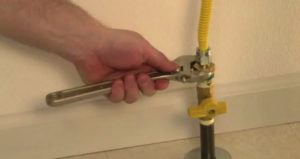
Selecting the right piping material for your home is sort of a quietly crucial decision. “Out of sight” tends to engender “out of mind,” after all, but. your pipes are essentially both the bones and veins of your plumbing system—therefore important to its overall performance and longevity.
With multiple options available for the choosing, it’s essential to understand in a general sense the pros and cons—circumstantial advantages and shortcomings of each. If you’re potentially on the pipe market, or even if you just assailed by that curiosity of the niche hobbyist, read along below as we compare/contrast the three most commonly used piping materials, all the better to make your choice an informed one should the need arise.
Copper Pipes
Often referred to as the industry’s “gold standard” for plumbing, copper pipes are known best for their durability, strength, and longevity. When properly cared for, copper pipelines can easily make it to 50 years and then some: a valuable investment indeed.
Pros:
- Durable and long-lasting.
- Corrosion-resistant and capable of withstanding high pressure.
- Versatile, suitable for various applications.
Cons:
- Labor-intensive to work with.
- Expensive compared to other piping materials.
Ideal use: Copper pipes are perfect for water lines, particularly in whole-home re-piping projects.
Iron Pipes
Cast iron pipes offer affordability and the capacity to function in high volume situations, a popular choice for main lines, sundry sewer components, and great big drain outlets. When correctly installed in protected locations, they too can last for 50 years or more.
Pros:
- Affordable and great for long pipelines with lots of traffic.
- Durable when properly installed and cared for.
Cons:
- Prone to corrosion, requiring regular inspection.
- Ill-suited as piping material for water lines (-potential taste and color issues).
Ideal use: The sewer is the best truest destiny of copper piping.
Plastic Pipes
Unlike metal piping material, plastic is resistant to corrosion, and can therefore boast in truth of exceptional longevity. The pipes are lighter, easier to work with, and more budget-friendly than its clunkier counterparts. Plastic piping can be made in any manner of shape and size, lending it the versatility for a wide range of applications.
Pros:
- Resistant to corrosion, ensuring ultra-longevity.
- Lightweight and easy to handle.
- Budget-friendly option.
Cons:
- More prone to damage and bursting under pressure.
- Not as durable as metal pipes.
- Eco-not-as-friendly.
Ideal use: While their versatility is legitimately and widely advantageous, it’s also that very attribute which creates a certain jack of all/master of none situation here. As piping material, then, let’s just say plastic is “ideally” used under whatever circumstances metal doesn’t have the mettle for.
All of Your Plumbing Needs from Master Plumbing
Give Master Plumbing a call at (301) 650-9100 or contact us online to get more information on how our expert plumbers can help you with just about anything plumbing-related! We have received Angie’s List Super Service Award recognition for plumbing and drain cleaning every year since 2007, in addition to the Best Plumber award from Best of Bethesda. We are fully licensed, bonded, and insured, and our service is unparalleled. Give us a call today—you won’t regret it! To see examples of our projects, follow us on Facebook, Twitter, and Pinterest.
